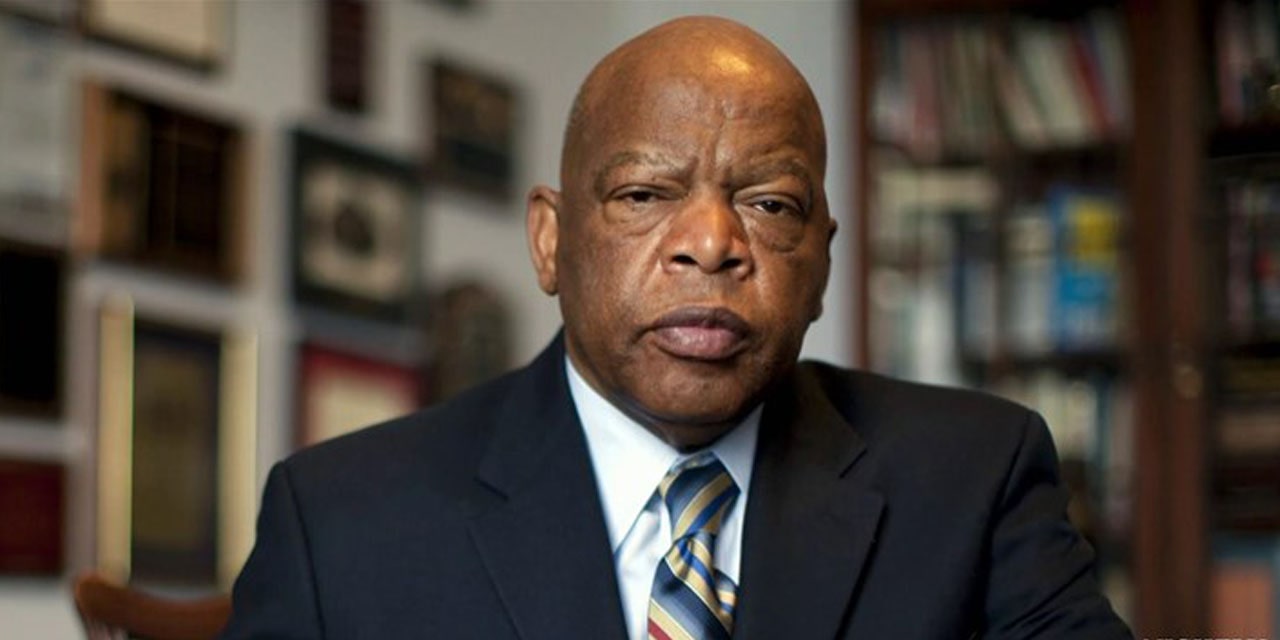… Representative John Lewis passes on
Jackie Wilson Asheeke
So many Namibians today have never heard of John Lewis. And yet, he and many other members of the US Congressional Black Caucus in the pre-independence days had heard of Namibia. Representative Lewis and many US legislators made speeches regularly denouncing US political and economic support for white supremacy in Africa. Now, John Lewis’ time is passed and he has gone home to a well-earned rest.
In the several times I met him during the height of my group’s anti-apartheid work in Washington, DC back in the day, I found him to be under-estimated and under-stated. When I worked with him or his staff, or heard him speak, he never ‘sold’ himself to the public. He made speeches from his soul on what he thought and felt. He boldly spoke against poverty, injustice, unemployment, apartheid and colonialism. He repeated Dr King’s statement that injustice anywhere is a threat to justice everywhere.
John Lewis was no expert on Namibia. But, he listened, informed himself and learned. Then in his next speech he would call for support for SWAPO and its leadership and for the UN Institute for Namibia (Hage Geingob was the director of UNIN) that was located in Lusaka. John Lewis was in the steady group of legislators that backed the immediate independence of Namibia.
For those who cannot ‘place’ this great leader in their minds, I assure you that you have seen him. In black and white film clips from the 1960’s of racist, violent US white police attacking protestors, there is footage and many photos of young activists trying to cross the Edmund Pettus Bridge in Selma, Alabama. That city and so many more were hot beds of white self-lies about their superiority and other unconstitutional outrages against black people (Search: March 1963, Edmund Pettus Bridge, Bloody Sunday to see a young John Lewis).
At the very front of the line, there is a young man in a light, trench coat with a back pack on and his hands in his pockets. That was John Lewis. First, the police charge the standing line of protestors with horses. Then, Lewis is trampled in the police running charge with night sticks and beaten. He stood there to demand justice and the cops cracked his skull.
Whenever I see that footage, I honour those who are such brave heroes. But, I am not made like that; I could not stand there and let someone hit me more than once with a night stick because I would have one too and I’d strike back.
We have all seen the film clips of Martin Luther King’s famous, “I have a dream” speech on the Mall in Washington, DC. But, what is less seen is the tape of the 23 year old representative of the Student Non-Violent Coordinating Committee (SNCC) who was also a very brave Freedom Rider, John Lewis. He made a short speech that day. The ‘elders’ organizing the March on Washington in 1963 did not want Lewis to give his original speech. His speech had been read in advance by the powers-that-be and was deemed to be too radical.
Lewis, representing the impatient youth who were on the front lines being beaten and killed in the civil rights movement, was pressured mercilessly; he was edited. When he spoke, he only said that the time for patience is over. He wanted no more gradual change, but change now. There was no more space for patience. His original text was more about patience as a curse word and ‘burn-baby-burn’ all across the racist South. He was going to blast Kennedy’s Civil Rights bill as insufficient. But, on that day in 1963, I believe he made the right sacrifice in that climate, at that moment in time, for the Greater Good. He was brave.
I would have wanted to hear his thoughts about the fact that nearly 60 years after he, as a youth leader was ‘toned down’ by movement leaders, white cops are still killing black folks with guns, night sticks and now, with their knees. And yet, ‘liberals’ and ‘movement’ leaders are still trying to tone the youth down.
From CNN – John Robert Lewis, the son of sharecroppers who survived a brutal beating by police during a landmark 1965 march in Selma, Alabama, to become a towering figure of the civil rights movement and a long-time US congressman, died after a six-month battle with cancer.
Lewis, a Democrat who served as the US representative for Georgia’s 5th Congressional District for more than three decades, was widely seen as a moral conscience of Congress.
– edition.cnn.com




